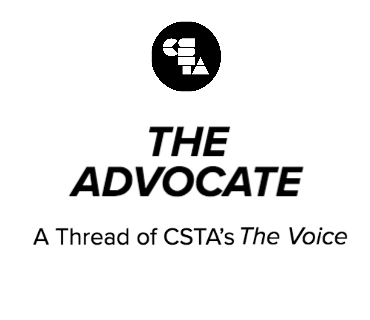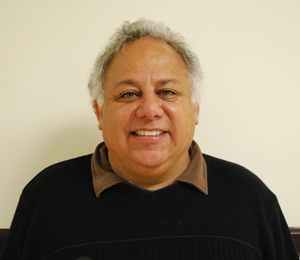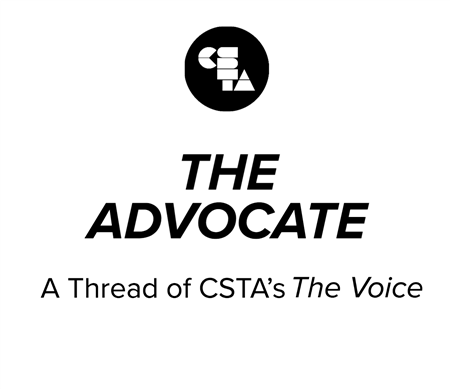
My name is Art Lopez, and it is an honor and privilege to have been elected to serve on CSTA’s Board of Directors as one of the 9-12 representatives.
Full Story
My name is Art Lopez, and it is an honor and privilege to have been elected to serve on CSTA’s Board of Directors as one of the 9-12 representatives. I would like to share with you a story of my journey and involvement with CSTA and Computer Science Education.
I have been teaching for 31 years in a variety of educational settings (middle and high schools and higher ed). Nine years ago, one of my high school students approached and asked me, “Mr. Lopez, why does Torrey Pines and La Jolla High Schools have computer science courses and we do not?” I replied that the student had asked a very good question, and conducted my own research on how many computer science courses were taught in my district.
The Sweetwater Union High School District is located in the South County of San Diego, and includes the border between San Diego, CA and Tijuana, Mexico. It has 13 high schools, 11 middle schools, 42,000 students, 70% diverse, 50% English Language Learners, 50% free/reduced lunch program participants, and not a single school taught a computer science course.
I realized that the students of my district were not being given the same educational opportunities and exposure to computer science education as those students in more privileged communities; I wanted to change this and provide them the same equity access to CS education and the opportunities that the field presents. In our world today, computing and computational thinking is just as important for our children to learn as the “three R’s” (Dr. Beth Simon of UC-San Diego).
I did not have a CS background, but, fortunately, I encountered an opportunity and became involved with a CS education program at UC-San Diego and the San Diego Supercomputer Center through a NSF grant by Dr. Jan Cuny. I discovered that CS education was seriously lacking in public education, and that only one in 10 high schools across the country offered CS courses. Furthermore, a main goal of the NSF grant was to broaden participation of under-represented groups in computer science, both women and ethnically diverse students, and provide equity access of computer science courses at ALL high schools (Dr. Jan Cuny, NSF Program Officer).
Through this new network, I discovered CSTA and joined to connect and network with others on teaching CS. It was a small but passionate and dedicated group interested in providing CS education for all students in the region of San Diego.
Since 2011, I have been engaged and collaborating/working within the CS education community at national, regional, and local levels, including teaching and creating/modifying/providing curriculum and best teaching practices. I also embed strategies for diverse populations for computer science education teachers and undergrads interested in teaching CS.
I have been fortunate to work with so many great people within the CS community; I wanted to share out what I have learned with others in my local area, coordinating and providing CS educators professional development/networking opportunities, access to free curriculum/instructional materials, and connections with industry partners interested in CS education. I immediately thought of the CSTA-San Diego Chapter as being the focal point for accomplishing this goal.
Unfortunately, during 2016- 2017, our local CSTA chapter had met only once. I reached out to our university partners/colleagues and some members of CSTA-San Diego; we created a new board, and worked on the “re-booting” of our chapter. Since then, we have had six general meetings with an attendance of between 50 to 80 CS educators from K-12, higher ed and industry members; the goals of our chapter focuses on equity access, bridging gender and diversity gaps, and providing engaging, rigorous, and all-inclusive CS curriculum (Dr. Susan Yonezawa, UC-San Diego): CS for All.
Because of these efforts, my district this year will offer over 60+ CS courses: AP CSP at 12 and AP CS A at eight high schools, and seven middle school CS courses. CSTA’s role cannot be understated for our members and the children and adults we teach. I want all of you to know that I will do my best to be all-inclusive and be your voice, working and serving with our board of directors, staff and the members of our CSTA community in addressing the issues of equity access, bridging gender and diversity gaps, providing CS FOR ALL, as well as resources and professional development/networking opportunities for our members.
 Art Lopez
Art Lopez9-12 Teacher Representative

